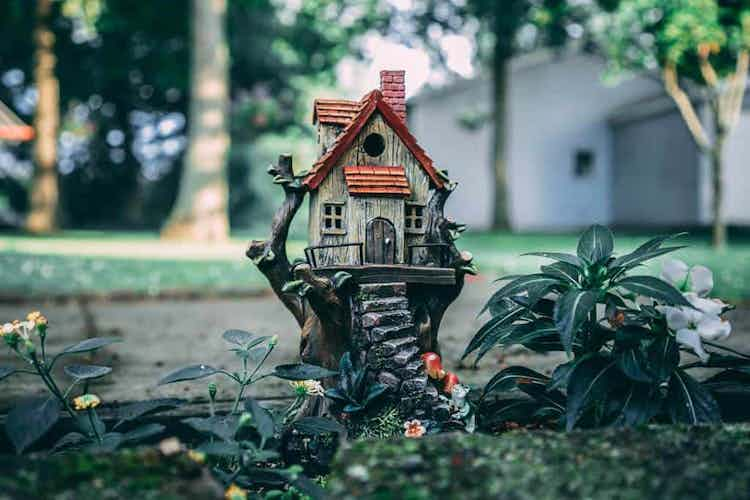What we want and need changes as we get older. Maybe you’ve progressed from lager to bitter or from killer heels to comfy kitten heels. What we need from our home changes over time too, so should you be downsizing or adapting your home?
It’s impossible to know what the future will look like in terms of your health or mobility, but that doesn’t mean you can’t make a plan. Your home has done you well until now, so do you need to sell it? We’ll look at that question along with:
- If I choose to downsize, what should I be looking for?
- What type of adaptations can I make to my home?
- Will I add value to my home if I adapt it for retirement?
Downsize or Adapt: Which is Right for Me?
Selling the family home and moving to somewhere smaller, or downsizing, is getting more and more common. Maybe your kids have flown the nest, or you want to unlock some of the value you’ve built up in your home over the years.
Selling your beautiful family home and moving to somewhere smaller, closer to doctors and shops, and with easier access – think bungalows and retirement villages – has a lot of advantages that I covered recently.
What if you love your house? You’ve got plenty of space for the grandkids to visit at the weekend and you’ve spent the best years of your life there. You can choose to stay in your family home and make it more suited to your changing needs.
Having some cash to make the adaptations is necessary, so looking at options to take a lump sum from your pension or other savings will be needed. It’s rare that you’d do anything to your home to devalue it, and you could even add value and boost your estate value in the long run.
How Do I Know What Adaptation to Make?
Once you’ve decided to stay put, you need to take stock of the house you’ve got. After years of investment and weekend tinkering, you’ll have a home tailored to your current needs. These will change, so ask yourself:
- What health conditions will I need to manage?
- Where are my mobility challenges going to come from?
- Are my eyes and ears holding up ok?
Let’s look at some of the adaptations you can make to your home to prepare for your old age and the good and bad in each choice.
Stair Lifts
The first thing you probably thought of when contemplating adapting your home for later in life was a stair lift. The technology has advanced over the years; they can fit into just about any space. You can even take it with you if you decide to move later on. With age comes the increased risk of taking a fall, so being able to get up and down the stairs safely are important considerations.
Pros
- Can add up to 50% of the value of the lift to your home.
- You can still use upstairs in your home.
- Cheaper than moving bathrooms and bedrooms around.
Cons
- Can be a little unsightly.
- You may one day struggle to get up off the seat.
Downstairs Bathrooms
Making your home suitable for single-storey living should keep you there well into your golden years. Adding a downstairs bathroom, including a bath with a side door or an extra-wide shower, will mean less need to navigate the stairs. You’ll be making your house more saleable in the long-run, too.
Pros
- Around 5-10% increase in house value.
- Having a downstairs bathroom is great for visitors too.
- Problems climbing stairs are fully mitigated.
Cons
- Can be costly to add in extra plumbing.
- The building process can be disruptive and stressful.
Extensions and Annexes
Adding extra space downstairs now will stand you in good stead for the future. If you lose mobility and can’t get upstairs, you can use the extra space to relocate your bedroom and stay in your own home. More space is always going to make your house more valuable, too. You can convert your garage, extend down the side entry or out back, or even build a standalone annexe. Be sure to follow the correct planning procedures, though.
Pros
- Can add serious value to your home.
- The space is handy to have even before you need a downstairs bedroom.
- You can design the new space to be accessible.
Cons
- It can be quite a hassle to get planning permission sometimes.
- You’ll need to have cash on hand to make the initial investment.
Other Adaptations
There are plenty of smaller things you might want to think about to make your home comfier as you age. The costs and convenience vary so see which ones might help in your circumstances. Here are some options to consider:
- Moving your plug sockets higher up the walls.
- Adding an intercom and remote access button to your front door.
- Adding a doorbell with a vibrate or light up option.
- Installing motion sensor lights.
- Adding ramps at your front and back doors.
- Widening door frames for wheelchairs and changing door directions.
- Installing grab rails around the house.
Final Thoughts
Leaving your family home can be tough. There might not be anywhere else local that you could see yourself living if you downsized. If you don’t want to move house in preparation for your retirement, adapting your home is a great option to explore.
Take some time to understand where your challenges are. If you’re already suffering in your knees, then think about how you’ll deal with your stairs. If your back’s starting to go now then get your plug sockets raised while you can deal with the disruption.
Having access to the money to make the changes is something you also need to think about. You will be adding value with any structural changes which the heirs to your estate will thank you for after you’ve died, too. Consider where your challenges are going to come from and how you see yourself living with the changes you need.








